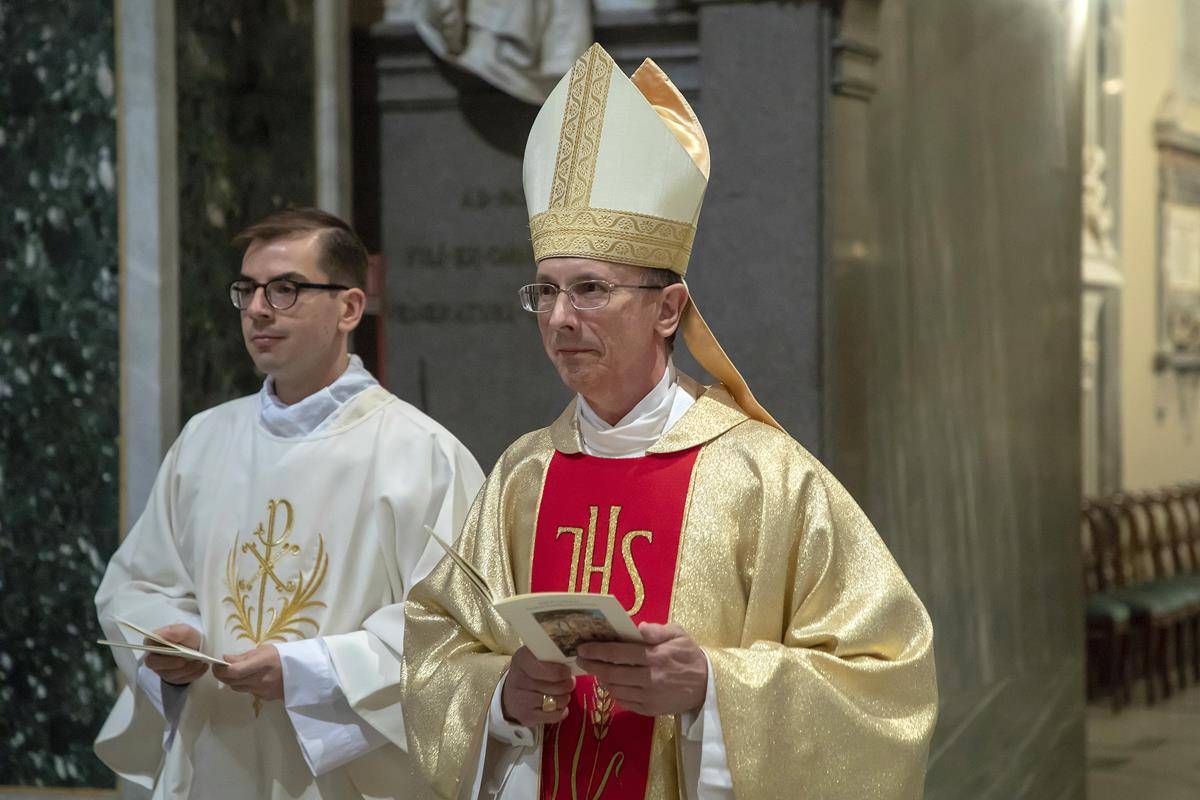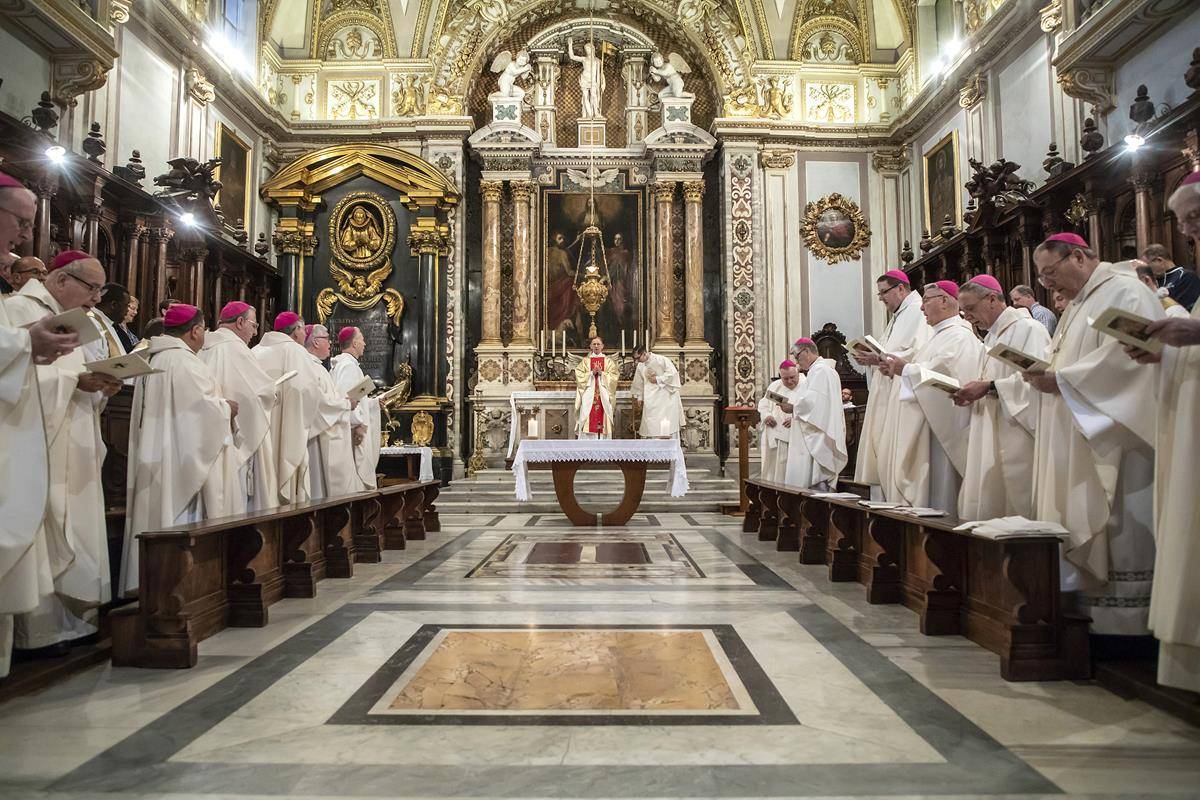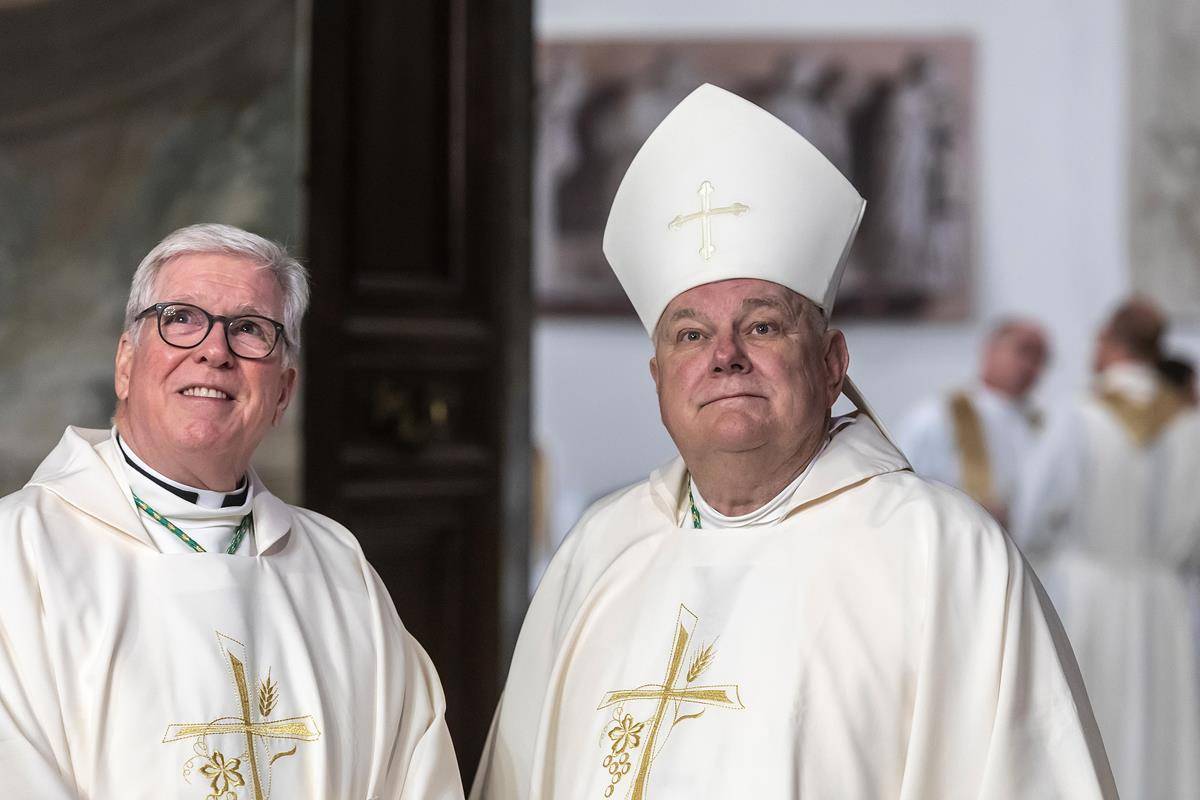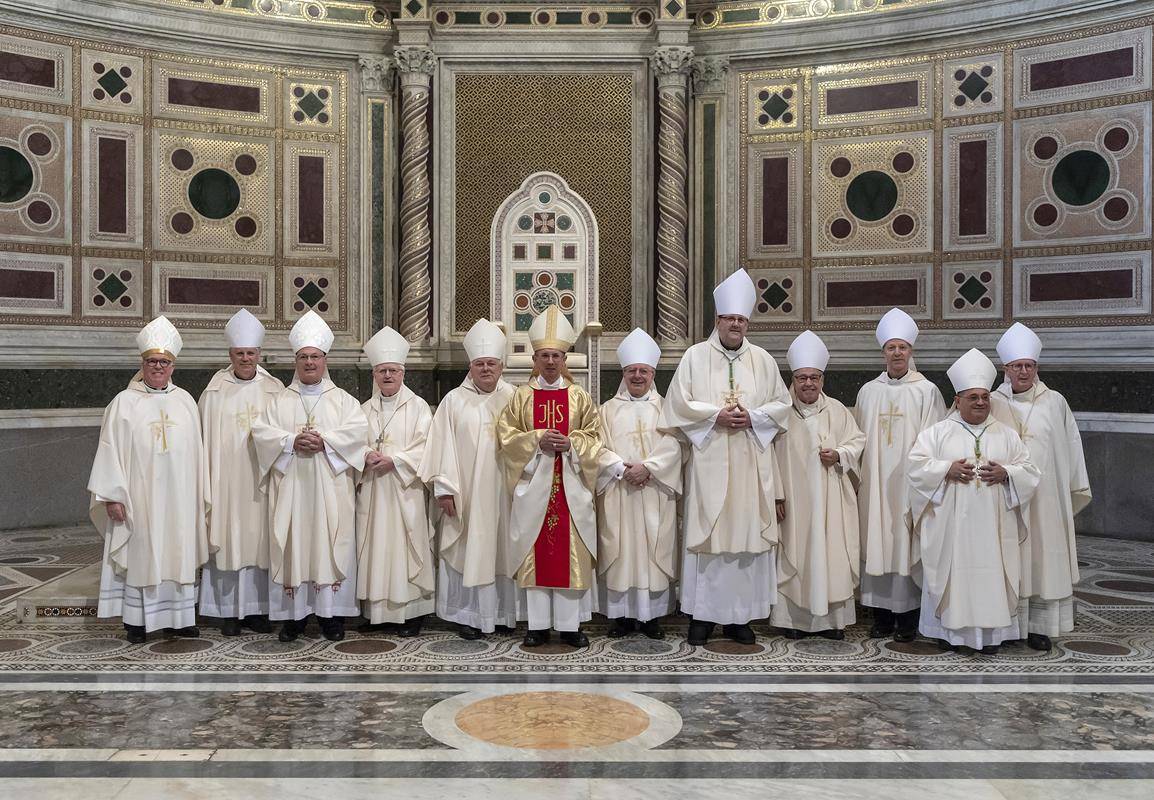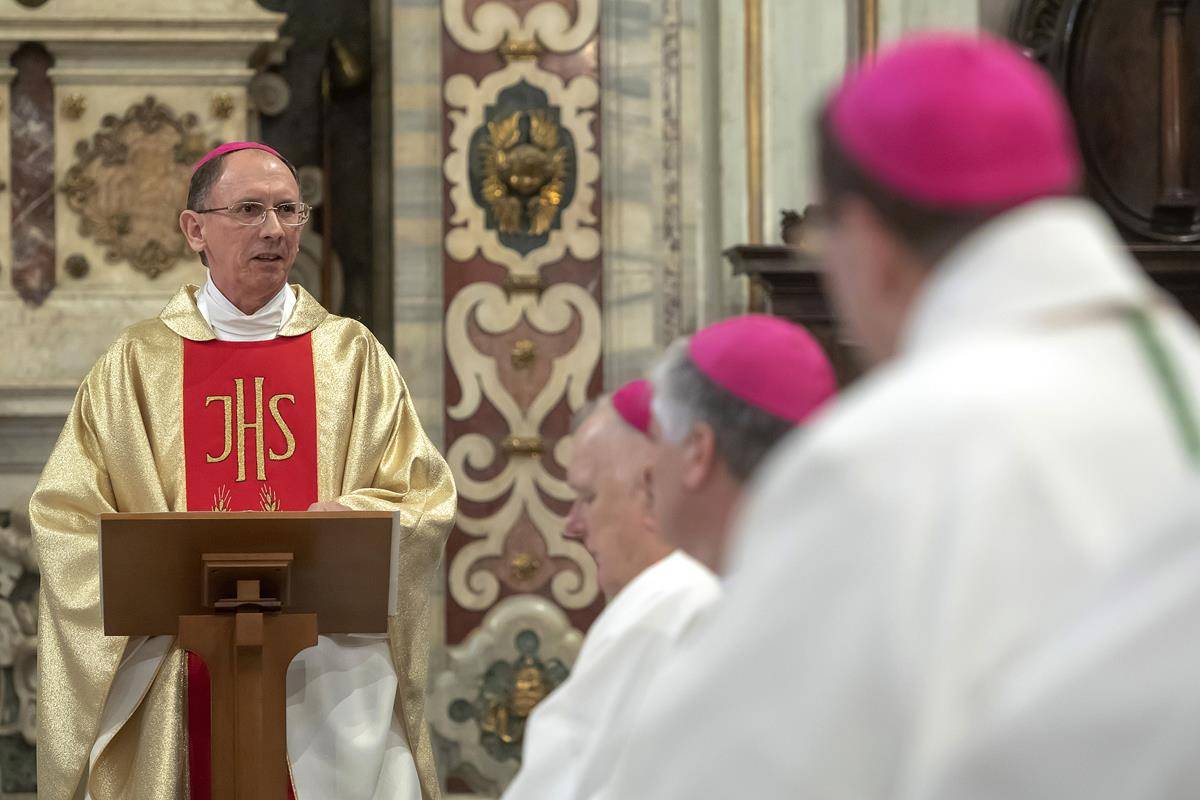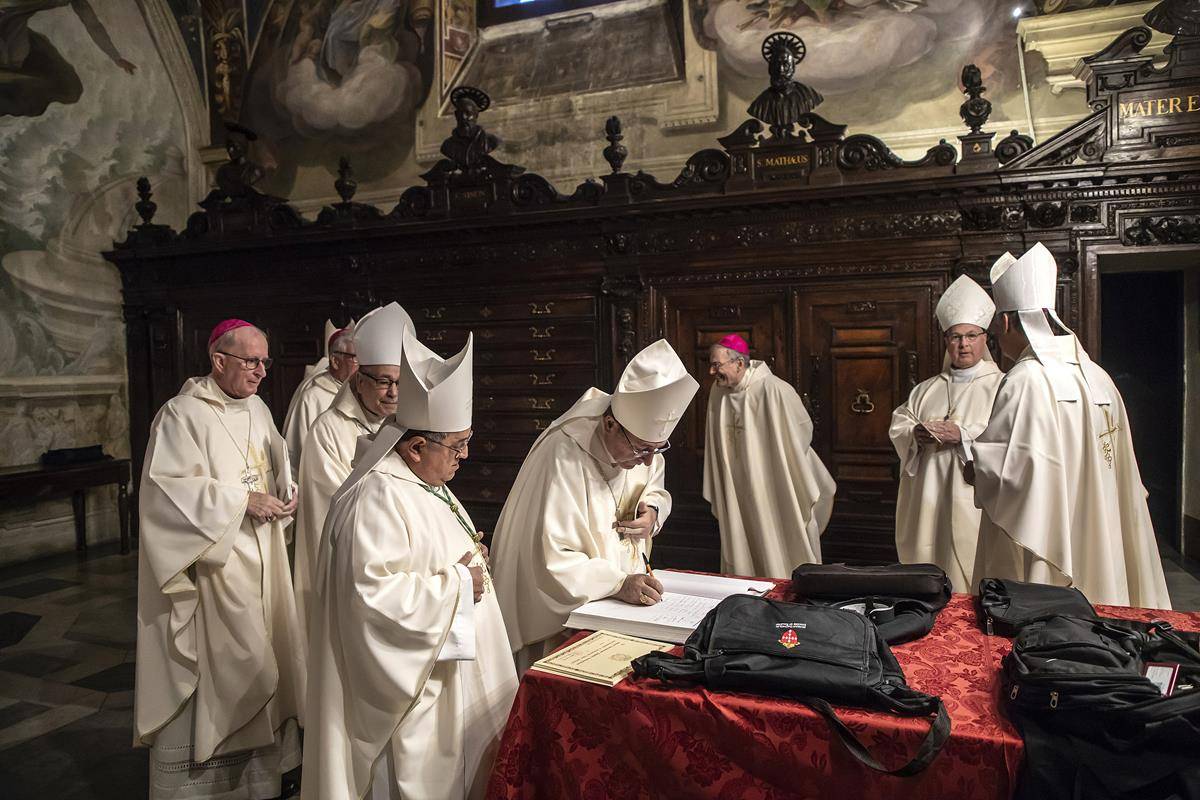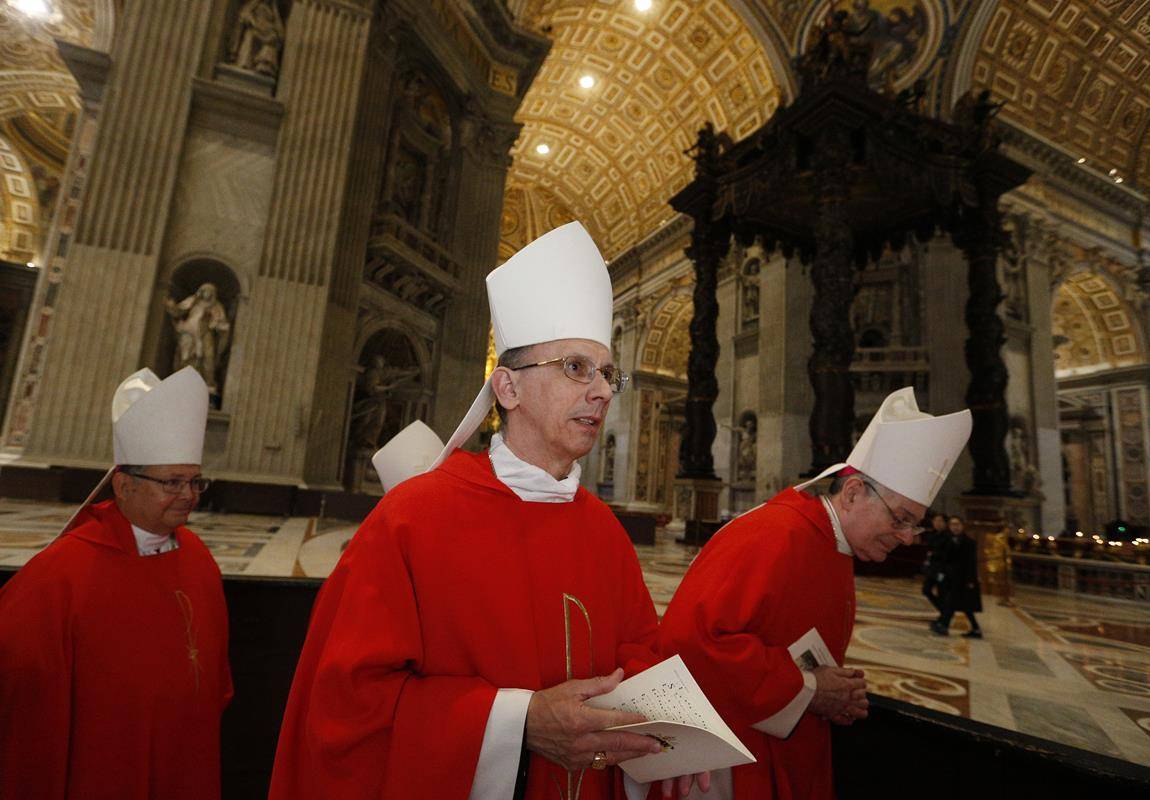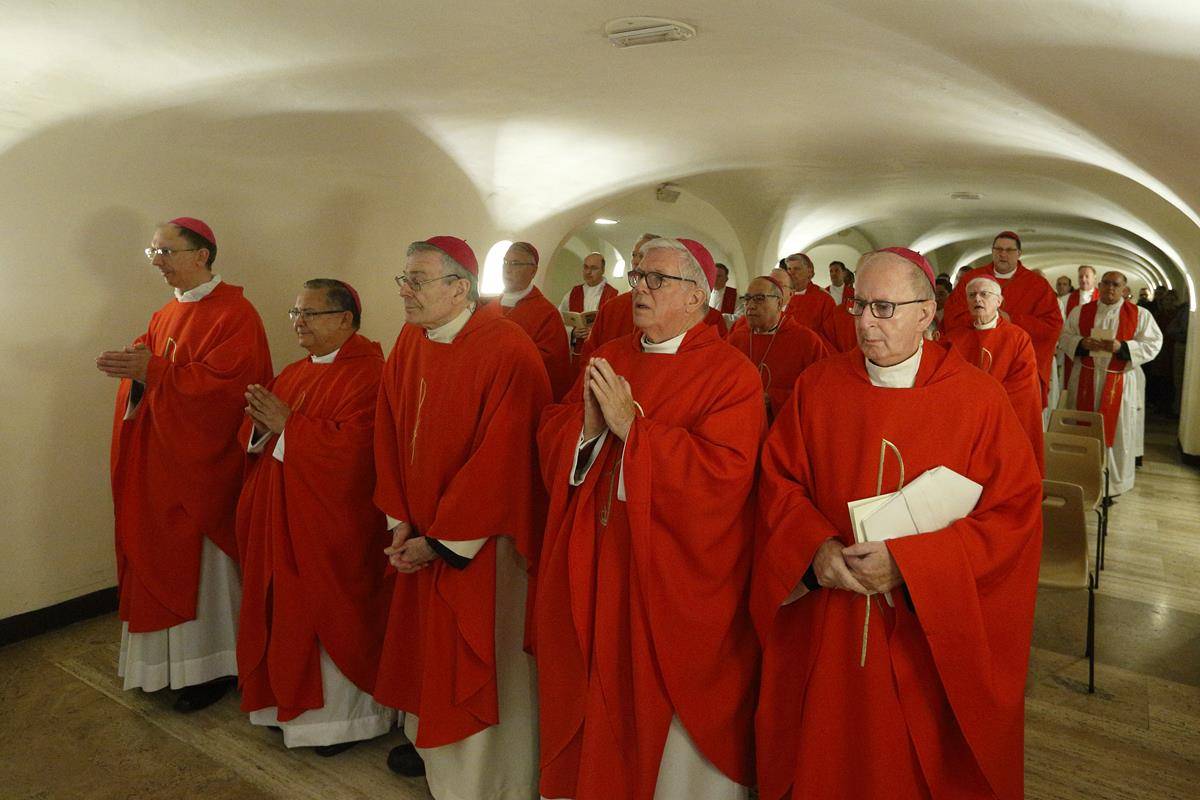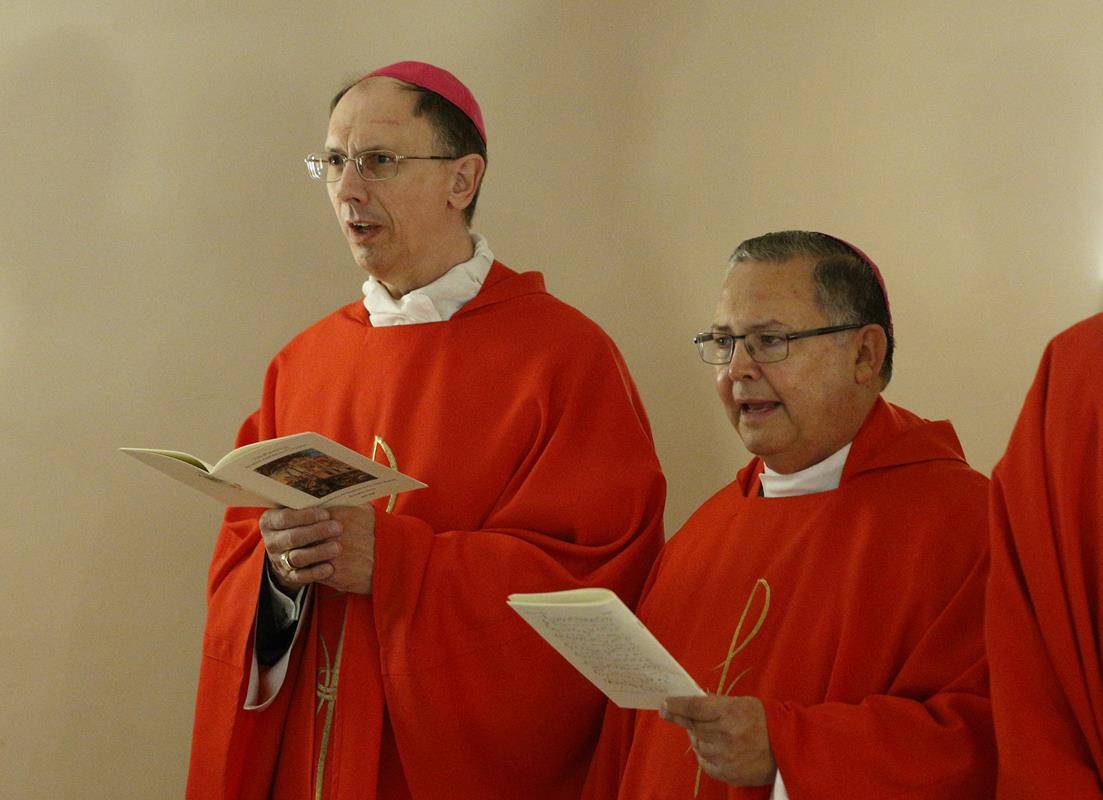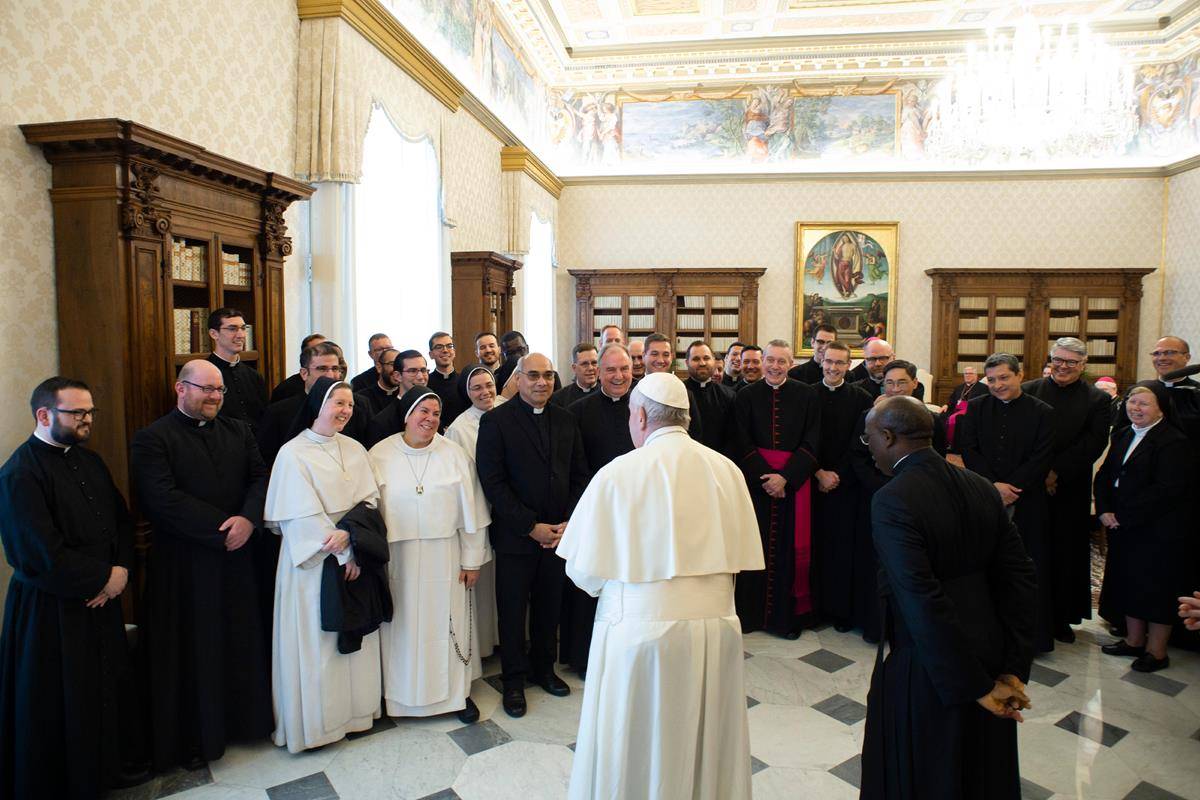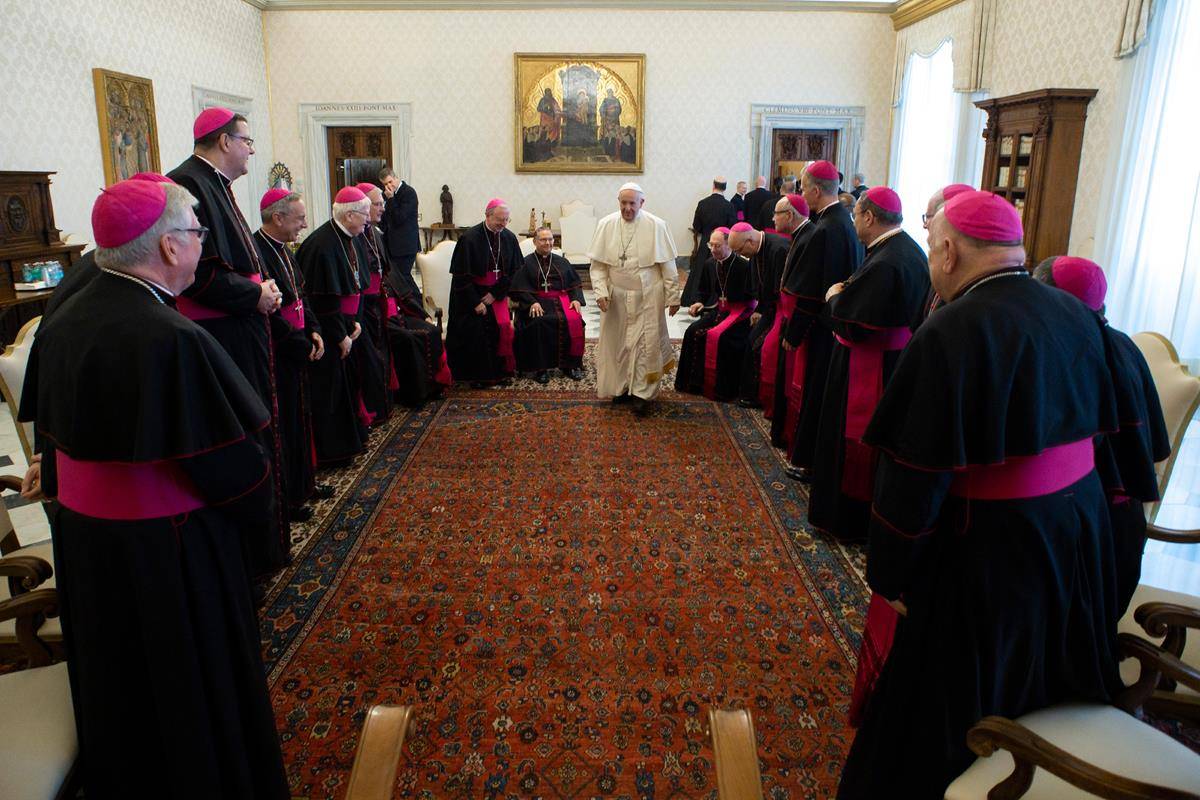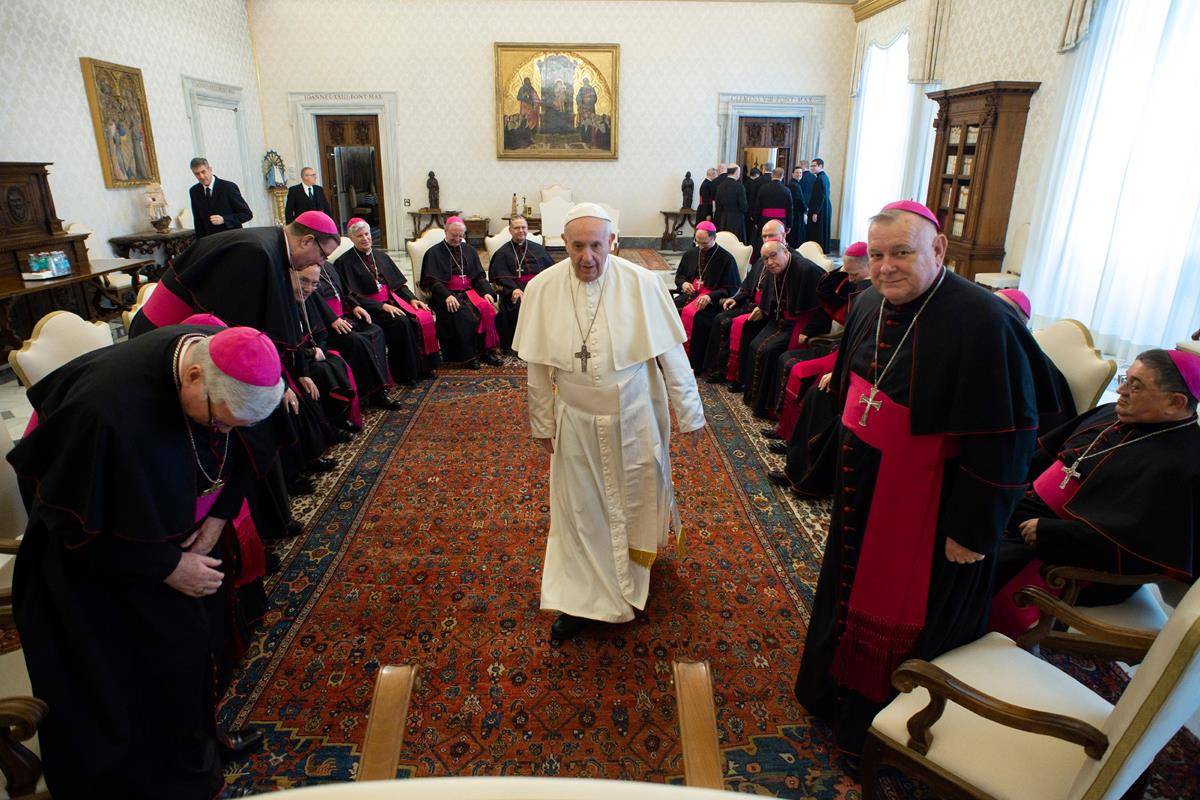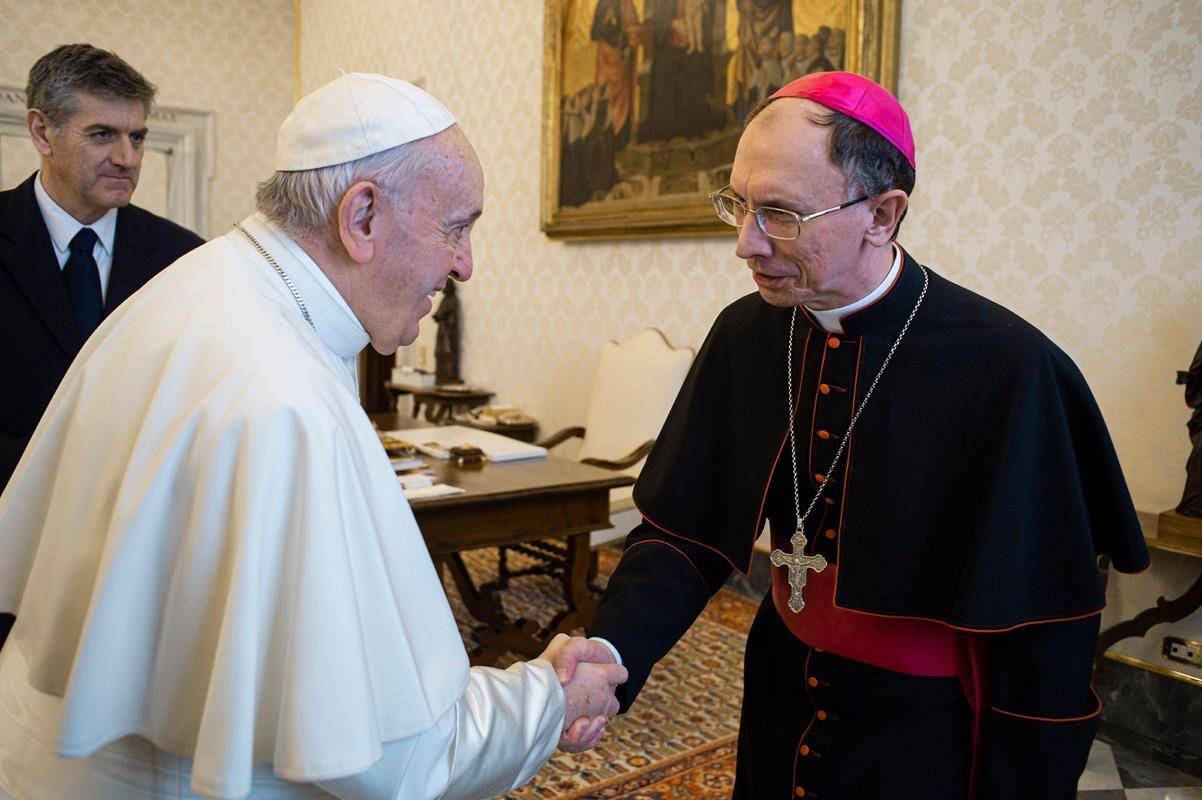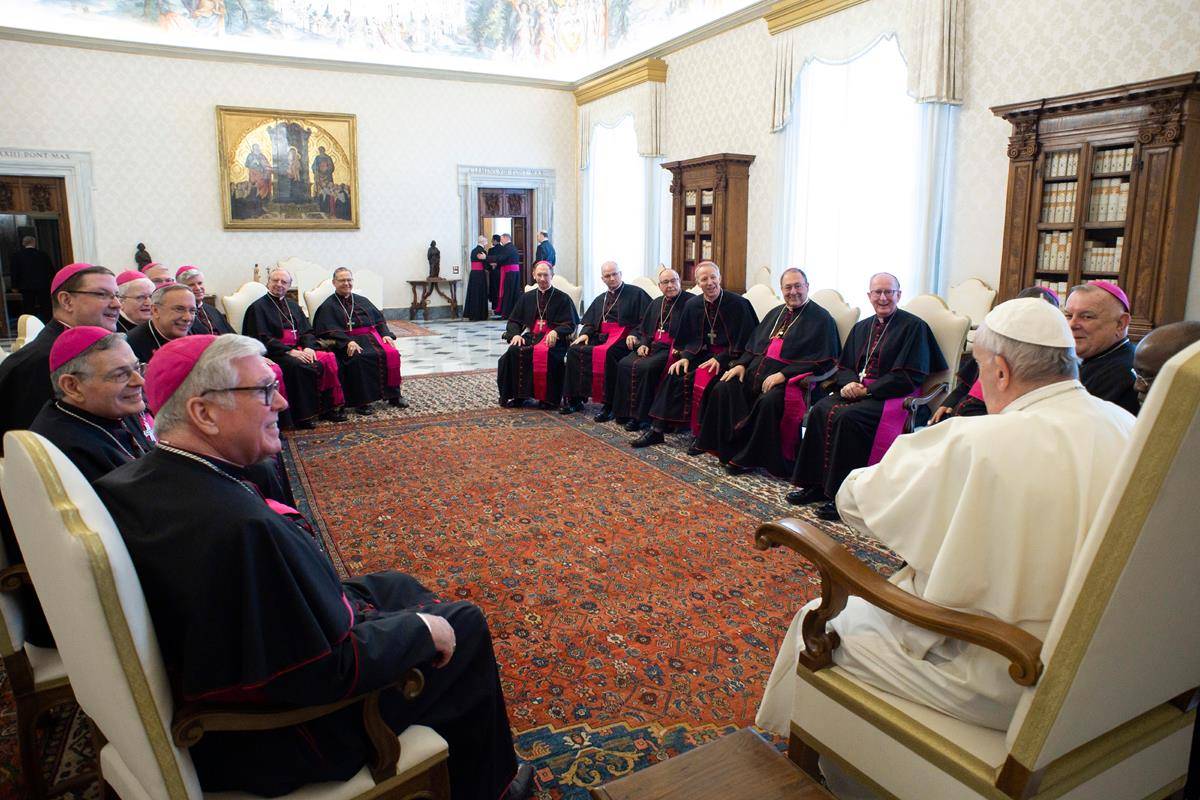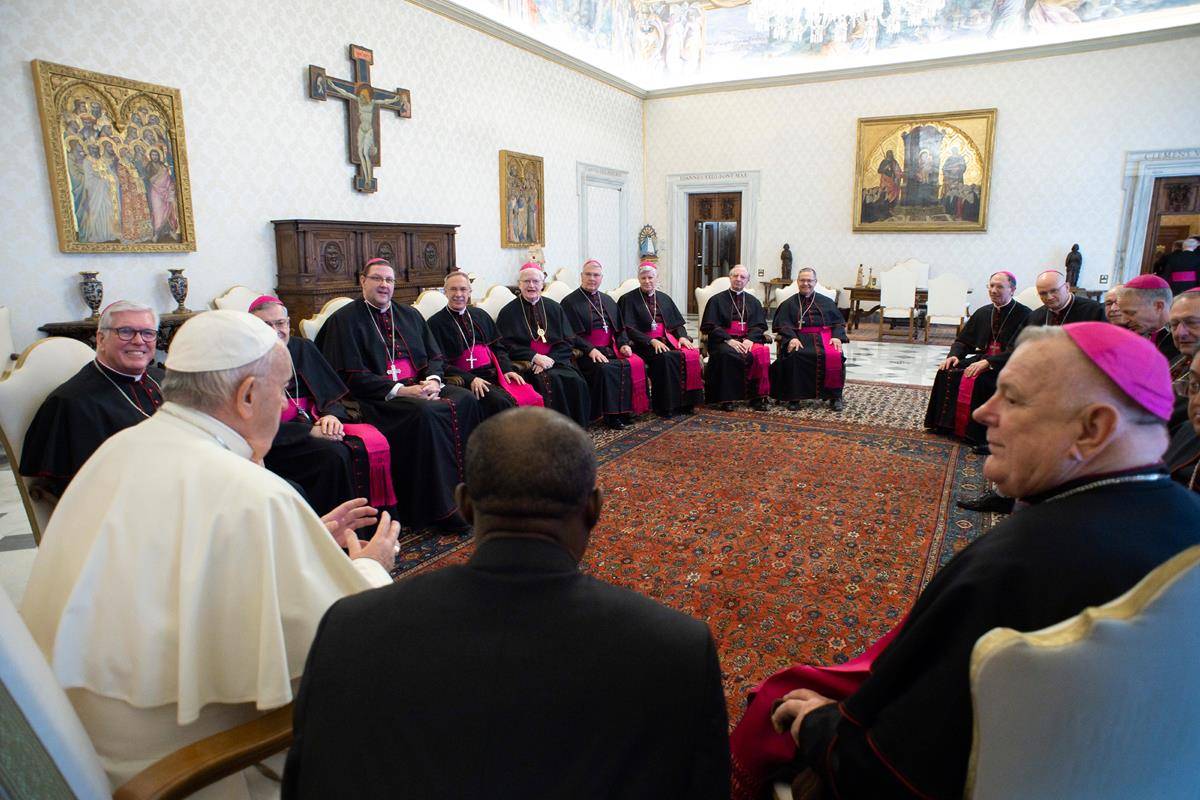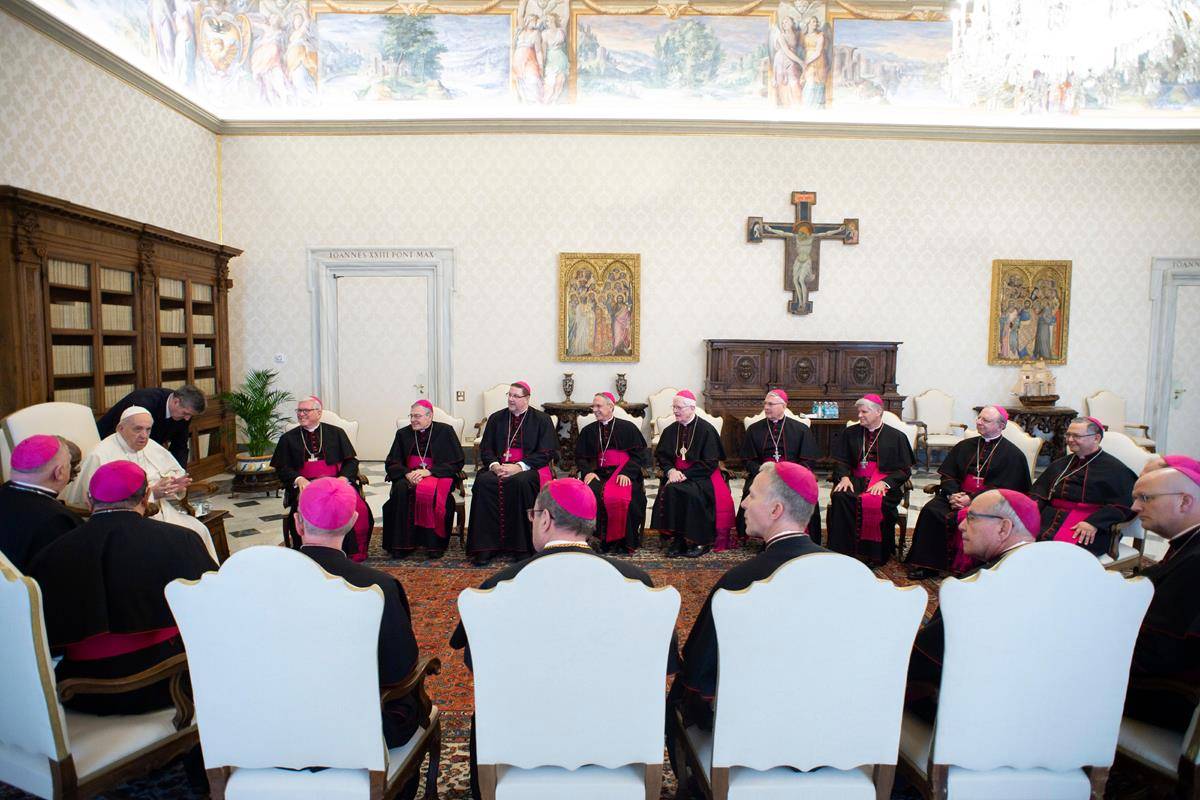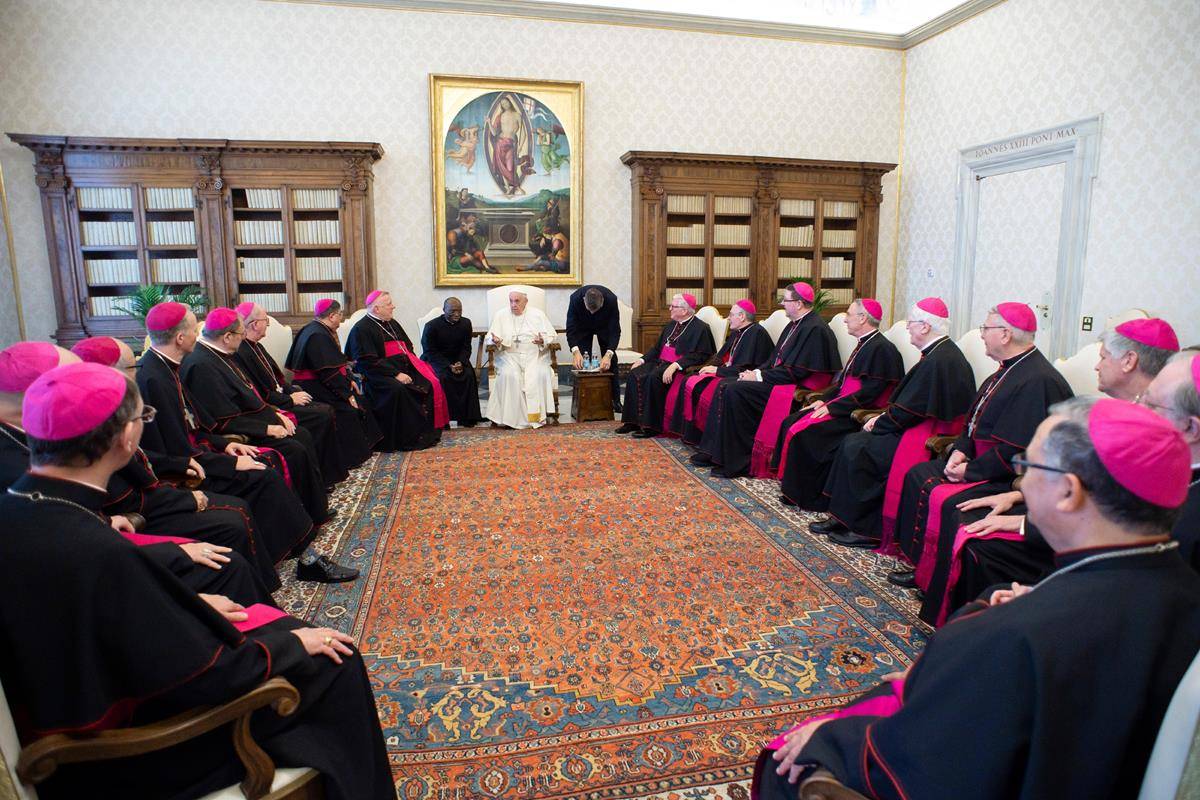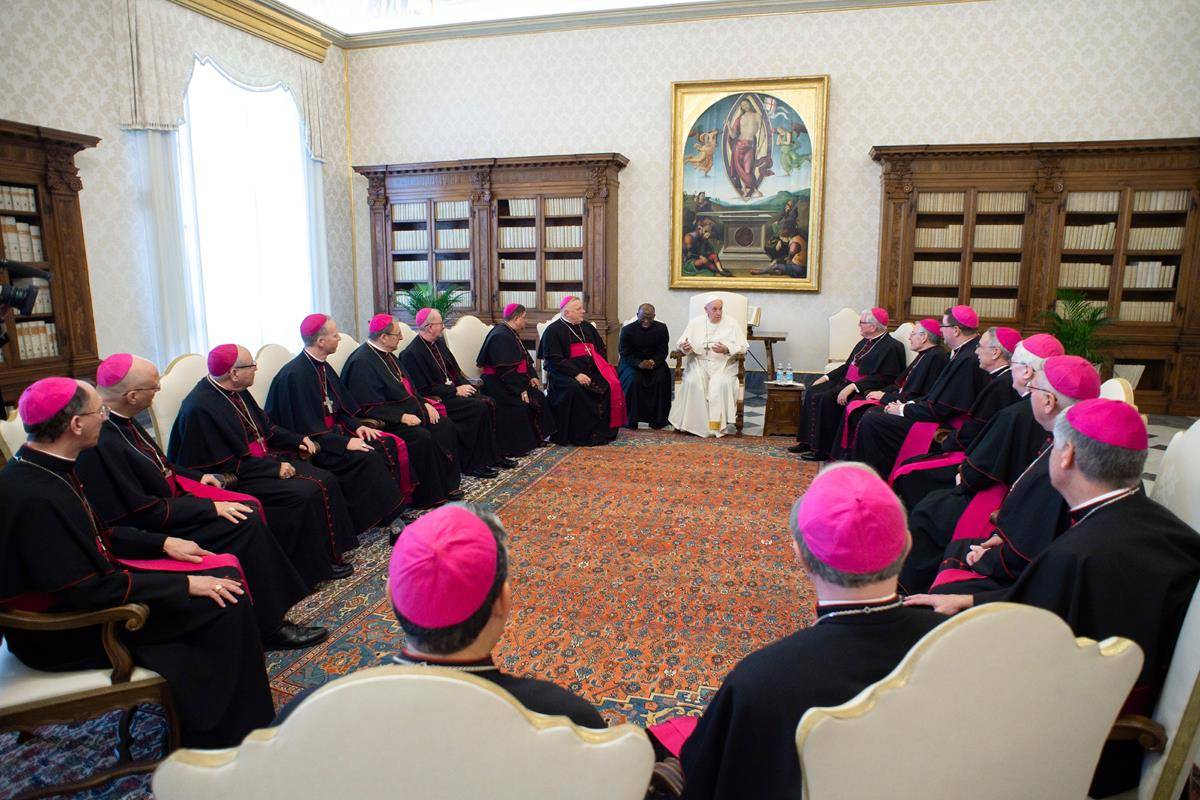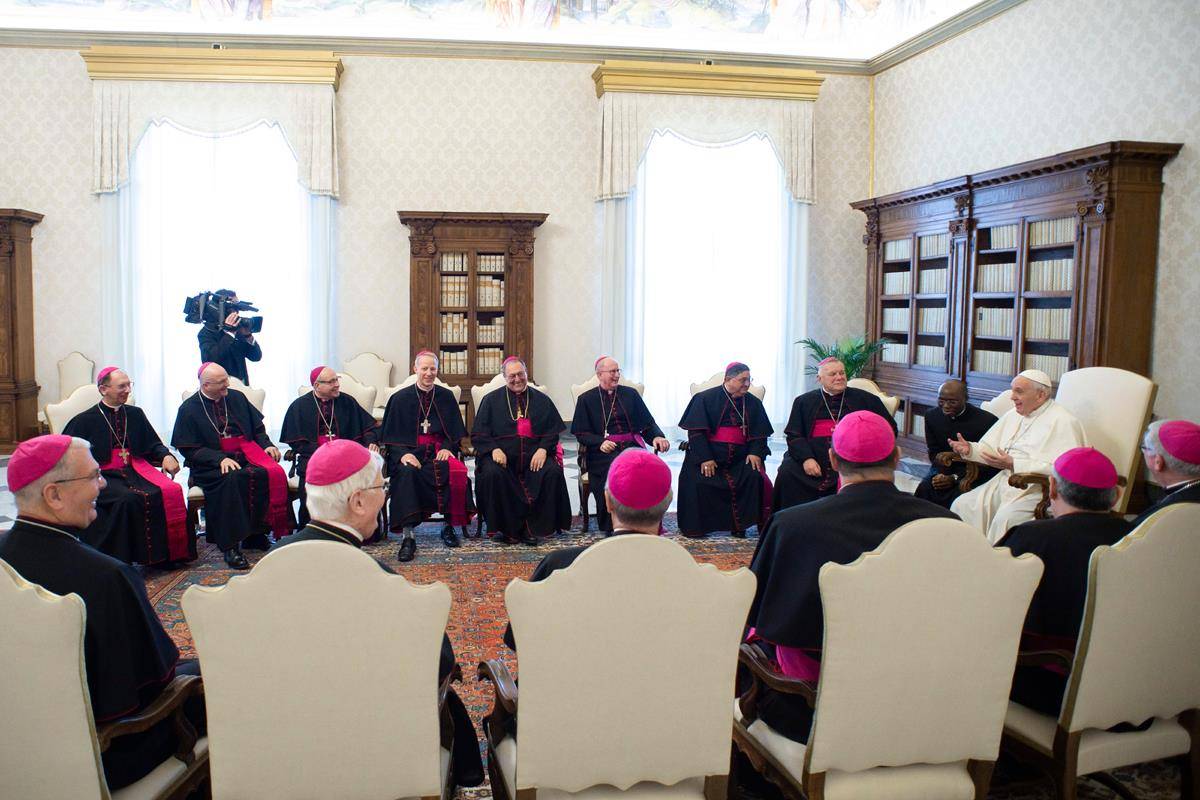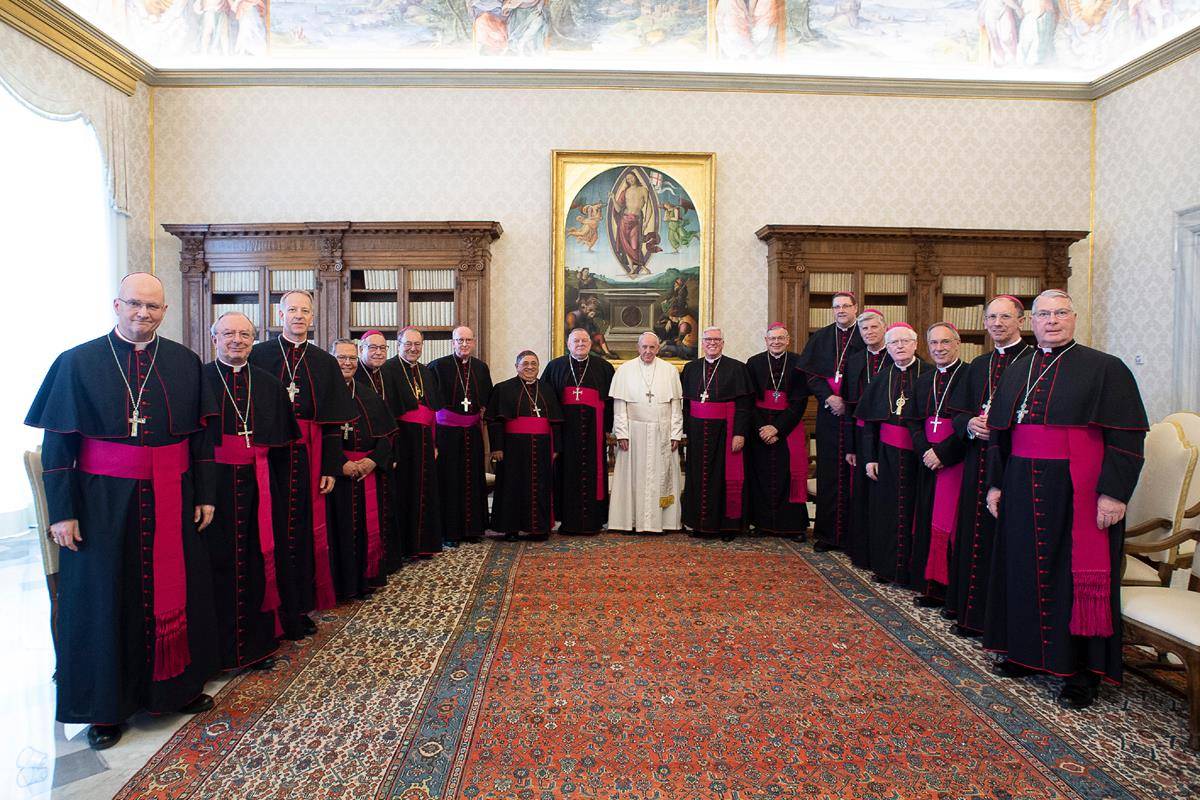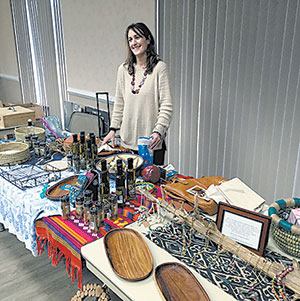 More than 120 people attended an educational event in Mooresville Jan. 31 on the issue of human trafficking and how to combat it in their everyday lives. The event was co-sponsored by St. Therese Church and Catholic Charities Diocese of Charlotte’s Respect Life Program and Anti-Trafficking Task Force.
More than 120 people attended an educational event in Mooresville Jan. 31 on the issue of human trafficking and how to combat it in their everyday lives. The event was co-sponsored by St. Therese Church and Catholic Charities Diocese of Charlotte’s Respect Life Program and Anti-Trafficking Task Force.
The U.S. bishops’ Anti-Trafficking Program encourages parishes to raise awareness on human trafficking during the month of January. Both the Catholic Charities’ Anti-Trafficking Task Force and St. Therese’s social justice committee are raising awareness on this issue all year long.
On the feast of St. Josephine Bakhita (Feb. 8), the patron saint of human trafficking victims, “Discussing Human Trafficking and How You Can Make a Difference,” was offered by Catholic Charities, the Sisters of Mercy and other anti-trafficking non-profits at St. Gabriel Church in Charlotte.
These collaborating groups are part of the Anti-Human Trafficking Task Force coordinated by Catholic Charities Diocese of Charlotte. The event began with Mass celebrated in the parish chapel, and continued with a fair trade sale with informational resources.
The event closed with a prayer service. Pictured is Kara Griffin, a member of the Anti-Human Trafficking Task Force and a parishioner of St. Matthew Church in Charlotte, presenting a wide variety of fair trade produced by artisans from around the world, some of whom are survivors of human trafficking.
At www.usccb.org/anti-trafficking-program: Read more about what you and your parish can do to combat the evil of human trafficking
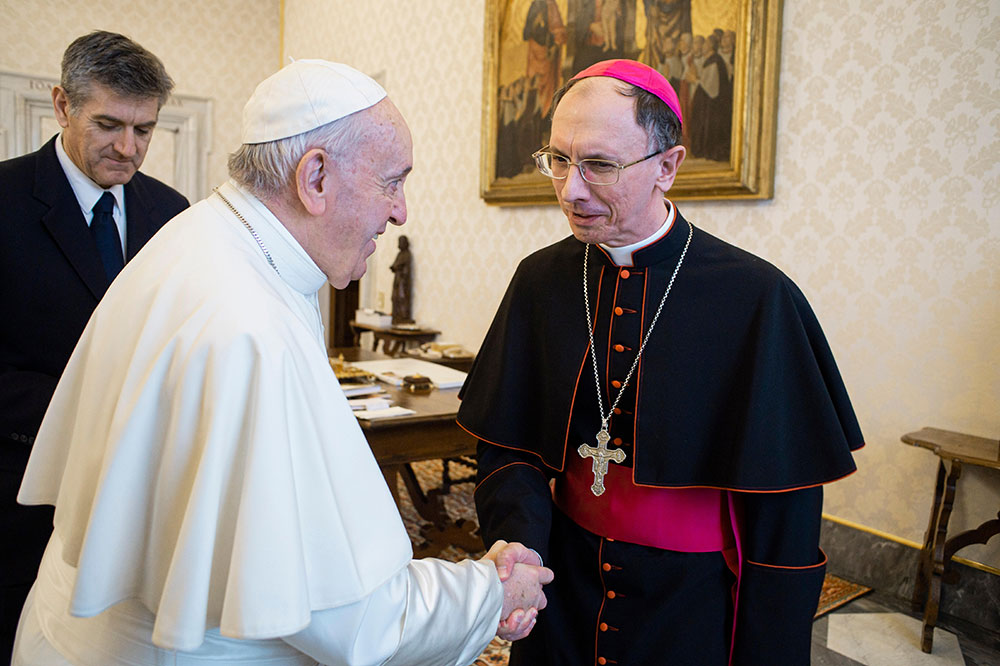 Pope Francis greets Bishop Peter J. Jugis of Charlotte, N.C., during a meeting with U.S. bishops from Florida, Georgia, North Carolina and South Carolina at the Vatican Feb. 13, 2020. (CNS photo/Vatican Media) VATICAN CITY — Pope Francis told a group of U.S. bishops that, like them, he is accused of not being courageous or not listening to the Holy Spirit when he says or does something someone disagrees with -- like not mentioning married priests in his document on the Amazon.
Pope Francis greets Bishop Peter J. Jugis of Charlotte, N.C., during a meeting with U.S. bishops from Florida, Georgia, North Carolina and South Carolina at the Vatican Feb. 13, 2020. (CNS photo/Vatican Media) VATICAN CITY — Pope Francis told a group of U.S. bishops that, like them, he is accused of not being courageous or not listening to the Holy Spirit when he says or does something someone disagrees with -- like not mentioning married priests in his document on the Amazon.
"You could see his consternation when he said that for some people it was all about celibacy and not about the Amazon," said Bishop William A. Wack of Pensacola-Tallahassee.
"He said some people say he is not courageous because he didn't listen to the Spirit," the bishop told Catholic News Service Feb. 13. "He said, 'So they're not mad at the Spirit. They're mad at me down here,'" as if they assume the Holy Spirit agreed with them.
Bishop Wack was one of 15 bishops from Florida, Georgia, North Carolina and South Carolina who spent close to three hours with Pope Francis Feb. 13 as part of their "ad limina" visits to the Vatican. They were joined by two from Arizona -- Bishop Edward J. Weisenburger of Tucson and Auxiliary Bishop Eduardo A. Nevares of Phoenix -- who had been unable to meet the pope with their group Feb. 10.
During the meeting, one bishop asked Pope Francis for three or four points he would like them to share with their people from the document "Querida Amazonia" (Beloved Amazonia), which was released the day before and offered the pope's reflections on the Synod of Bishops for the Amazon.
Auxiliary Bishop Joel M. Konzen of Atlanta told CNS that the pope said the most important message in the document for U.S. Catholics is to care for the planet, "that this is a grave matter."
Then, he said, the pope told the bishops that months or even years go into producing documents and what gets reported by the media "is one line" or that "the pope didn't have the courage to change the rules of the church."
Bishop Wack said the pope told them the synod met "'to talk about the issues of the church in the Amazon. Other people wanted me to talk about celibacy. They made that the issue. But that wasn't the issue of this synod.'"
Pope Francis told the bishops that they and their priests must teach and preach about care for the environment, Bishop Wack said. "He said even if people don't want to hear it. How can we deny that things are changing? How can we deny that we're hurting our future? And he said, if we don't talk about these things, well, shame on us. We have to preach the Gospel, and this is part of the Gospel."
Archbishop Thomas G. Wenski of Miami said Pope Francis also talked about what he means by "synodality" and members of the church listening to each other, praying about issues and trying to discern a way forward together. The synod, he said, is not "a parliament in which people take majority votes on a whole bunch of issues."
Among the reactions concerning the exhortation that caught Pope Francis' eye, he said, was a commentary that said "the pope lacked courage" on the issue of ordaining married men.
"But the synod is not about the courage of the pope or the lack of the courage of the pope," Archbishop Wenski paraphrased the pope as telling them. "The synod is about the action of the Holy Spirit and discernment of the Holy Spirit. And if there is no Holy Spirit, there is no discernment."
If discernment and the action of the Holy Spirit are missing, then it is just "a meeting and it's people sharing opinions and maybe research, but it's not necessarily a synod unless it's in some way governed by the Holy Spirit," Bishop Konzen said.
Bishop Wack said Pope Francis also explained that synodality and discernment are processes that continue even after a synod has met and a document has been published.
"He said, 'You can't just meet once and then say, "Oh, we have all the answers," but the conversation continues,'" the bishop said. "And so, he said, 'What we did is we raised these issues, and now we have to deal with them,'" continuing to invoke the Holy Spirit and discern the path for the future.
As with the 13 groups of U.S. bishops that preceded them, the bishops also spoke with the pope about the clerical sexual abuse crisis, immigration, youth and young adult ministry and what it means to be a bishop.
Bishop Wack said he asked for advice about finding balance as a bishop since "we are supposed to be shepherds, we're supposed to be priests for the people, other Christs. And yet, just like with our pastors, like so many people working in the church, as well as parents and people working in world, we are so busy with so many other things."
Pope Francis spoke at length about being a bishop, he said. "He said if we're too busy doing other things, we put those aside; we pray, and we preach, and we serve our people."
Archbishop Wenski told CNS that in covering the church or Pope Francis' teachings, the press often uses "categories from the world, and they don't fully appreciate that we're dealing with a different way of being, a different way of thinking."
The bishops' meeting with the pope, he added, was a moment to "be with the pope, see the pope and to hear the pope" in a relaxed atmosphere and discuss issues "that concern us bishops throughout the world."
"That was a great opportunity because often times, as bishops, we experience the pope through the filter of the news media. And it's good to experience him without that filter; (to) experience him face to face," he said.
— Catholic News Service
Related: Bishops called to lead, serve with love, Bishop Jugis says
Feeling superior is obstacle to evangelization, archbishop says
 Pictured above: Bishop Peter J. Jugis of Charlotte and Auxiliary Bishop Eduardo A. Nevares of Phoenix concelebrate Mass with other U.S. bishops in the crypt of St. Peter's Basilica at the Vatican Feb. 13, 2020. The bishops were making their "ad limina" visits to the Vatican to report on the status of their dioceses to Pope Francis and Vatican officials. (CNS photo/Paul Haring)VATICAN CITY — No Christian can be a "missionary disciple" if he or she thinks another person is not worth saving, said Archbishop Thomas G. Wenski of Miami.
Pictured above: Bishop Peter J. Jugis of Charlotte and Auxiliary Bishop Eduardo A. Nevares of Phoenix concelebrate Mass with other U.S. bishops in the crypt of St. Peter's Basilica at the Vatican Feb. 13, 2020. The bishops were making their "ad limina" visits to the Vatican to report on the status of their dioceses to Pope Francis and Vatican officials. (CNS photo/Paul Haring)VATICAN CITY — No Christian can be a "missionary disciple" if he or she thinks another person is not worth saving, said Archbishop Thomas G. Wenski of Miami.
As Pope Francis has taught, Catholics must be "missionary disciples," sharing the good news especially with people on the peripheries of society: "the poor, the abandoned, the migrant," the archbishop said. But first, "we have to believe that their souls are worth saving."
The Christian faith calls believers "to overcome our prejudice, overcome the bias we might hold in our hearts toward those outside of our chosen circle of friends and relatives," Archbishop Wenski said Feb. 13 during Mass in the grotto of St. Peter's Basilica.
The archbishop was the principal celebrant and homilist as bishops from Florida, Georgia, North Carolina and South Carolina celebrated the Mass at the tomb of St. Peter before meeting with Pope Francis.
While the Mass did not include the Gospel passage where Jesus asks St. Peter, "Do you love me?" Archbishop Wenski had to point out the connection with his archdiocese. In Italian, Jesus' question is simply, "Mi ami?"
"This beautiful basilica is built on top of a grave, Peter's grave," the archbishop said. "Here we pray for his successor, Pope Francis, that he, too, will continue to take care of the sheep entrusted to his care."
Joined by dozens of pilgrims, the archbishop asked them to pray that their own bishops also would love the Lord and love the people he entrusts to them.
The day's Gospel reading, Mk 7:24-30, recounted the story of Jesus' encounter with the Syrophoenician woman and the healing of her daughter.
In his homily, Archbishop Wenski said that some Jews in Jesus' day believed that their identity as God's chosen people gave them the right to look down on anyone from any other nation, like the Syrophoenician woman.
But as Jesus demonstrated and his apostles came to know, the good news of salvation was for everyone -- "every nation, every person no matter their race or origin" -- the archbishop said.
The gift of salvation and "being able to call ourselves Christians and Catholics," he said, "is not something we should lord over others as if this would give us the right to think of ourselves as better than others."
 "After all," he said, "there are good people who are not Christians, and there are bad people who are."
"After all," he said, "there are good people who are not Christians, and there are bad people who are."
The gift of knowing Jesus and being saved by him is a gift to be shared, the archbishop said. "We acknowledge our sinfulness, but we testify that his mercy is greater than our weakness."
— Cindy Wooden, Catholic News Service
 CHARLOTTE — Father Julio Domínguez has been appointed vicar of Hispanic Ministry for the Diocese of Charlotte, Bishop Peter Jugis has announced.
CHARLOTTE — Father Julio Domínguez has been appointed vicar of Hispanic Ministry for the Diocese of Charlotte, Bishop Peter Jugis has announced.
Father Domínguez succeeds Father Fidel Melo, who has been granted a sabbatical for a year to participate in a Purépecha language and culture immersion in the Archdiocese of Morelia in Michoacán, Mexico, in order to minister to the Purépecha immigrant community here in the diocese.
Father Domínguez’s appointment was effective Feb. 1.
The new role caps more than 16 years of ministry in the diocese for Father Domínguez, who was ordained for the diocese in 2003.
A native of Tamaulipas state, Mexico, Father Domínguez knew he wanted to be a priest since he was 8 years old, he says. Yet like many young people as they grow up, he left the Church for a time in his teenage years and had doubts about his faith. But a conversation with his mother, Esperanza Prieto, impelled him to return to his faith when he was in high school.
He recalls his mother telling him, “Look, César (that is what his mother calls him), I’m just going to tell you something. I already showed you the way of God and you had taken it very well, but you left it. I just want you to know that there is a heaven and a hell, and you are on the road to hell. It depends on you, I already gave you the basis, and you are going to take the path you want.”
He began to take a more active role in the Church after a missionary priest urged him to receive training to become a catechist. What he learned about his faith, he says, filled his heart.
“The missionaries explained everything so well that it made sense,” he says.
He left his secular studies and a girlfriend at the time, and enrolled at the Religious House of the Missionaries of Christ Mediator. He remained in religious life for the next 10 years, but he felt God was calling him to work more closely with people at a parish, in a community.
While studying his third year of philosophy and theology in Rome, he made plans to enter the diocesan priesthood in Jalisco, Mexico. But before returning home to Mexico from Rome, he stopped over in Gastonia to visit relatives.
That visit to Gastonia changed his life, he says. There he met Father John Allen, who at the time was pastor of St. Michael Church there. Father Allen encouraged him to consider studying for the priesthood for the Charlotte diocese. He had doubts about leaving his home and family in Mexico and he wondered about the challenges of learning a new language and serving in an unfamiliar area, he recalls, but his mother encouraged him again to follow God’s will.
“God does not work by chance,” she told him.
After his ordination, Father Domínguez served at Sacred Heart Parish in Salisbury, where his mentor was Father John Putnam, formerly pastor there. He then served at St. Aloysius Church in Hickory, and for the past seven years he has served as pastor of St. Francis of Assisi Church in Lenoir.
His secondary assignments have included serving on the Presbyteral Council, overseeing the Hispanic Track of the annual Diocese of Charlotte Eucharistic Congress, serving on the diocesan vocations team and, most recently, serving as Hispanic Ministry coordinator for the Smoky Mountains Vicariate.
— César Hurtado, Catholic News Herald


